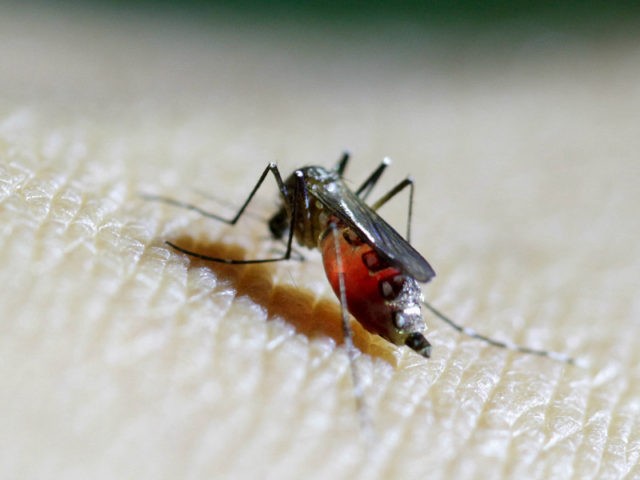While the World Health Organization (WHO) declared the global Zika outbreak no longer an emergency this week, officials in Brazil fear that the incoming spring season will provide a boost to the nation’s mosquito population, and the government will be ill-prepared to stop a second wave of Zika.
Brazil’s R7 news reports that a number of medical experts have warned the government to invest more in anti-mosquito programs, both to prevent Zika and keep Brazilians safe from other viruses carried by the aedes aegypti mosquito, like Chikungunya. “What was done here a year ago was only dry ice,” Artur Timerman, infectious disease specialist and president of the Brazilian Society of Dengue, told R7, using a Portuguese idiom for an ephemeral cure. “Going into people’s houses and talking to the people caring for their little plants, telling them ‘the mosquito will not win the country,’ does not solve anything. The mosquito won a long time ago!”
In what was the largest military operation in the nation’s history, Brazil deployed troops to affected areas, going door-by-door and teaching residents how to prevent stagnant pools from forming mosquito nests and how to dress to avoid getting bitten.
R7 cites several experts warning of an “explosion” of Zika and Chikungunya cases, particularly in areas where researchers did not document a significant presence of these viruses. “The outbreak this year will be in the Southeast and the Northeast,” predicted Marco Aurelio Palazzi Safad, Ministry of Health adviser and pediatrician.
Some suggest that Chikungunya is the greater threat because it causes more damage in adults than Zika. The Brazilian newspaper O Globo reports that officials in Rio de Janeiro are particularly concerned that the climate there is especially friendly to aedes aegypti. Virologist Pedro Fernando da Costa Vasconcelos tells the outlet that, as Chikungunya is deadlier than Zika to adults, and Rio and four other large Brazilian states are at risk, the government should invest more in awareness of the mosquitos. Rio de Janeiro has already begun hosting disease prevention and blood donation events in anticipation of the Southern Hemisphere’s summer, and Brazil’s Health Minister Ricardo Barrios has confirmed that the nation will continue to be in a state of emergency due to Zika despite the WHO lifting the global emergency warning.
Aedes aegypti breeds in small pools of still water, in humid climates. Prevention largely consists of ensuring that no stagnant pools of water remain available in backyards, trash cans, and gutters after rains. Women who are pregnant or may become pregnant are also advised to wear long sleeves and pants to avoid bites that could damage the brain of their child.
In addition to dealing with potential new cases of Zika, Brazil is struggling to provide medical care to the thousands of infants born in the past year with microcephaly and other severe birth defects now confirmed linked to Zika. Microcephaly is a condition in which an infant’s skull is too small to contain his or her brain, crushing the brain and damaging key neurological functions. New studies suggest that children affected by Zika may not show signs of microcephaly, including the telltale small head, at birth, but may nonetheless develop severe defects later on.
One new study found that children not diagnosed with microcephaly at birth, but carrying the Zika virus, later “exhibited a range of defects including epilepsy and motor disabilities, some of which appeared months after birth.” Up to one in five children in the study did not exhibit symptoms of neurological disability at birth.

COMMENTS
Please let us know if you're having issues with commenting.